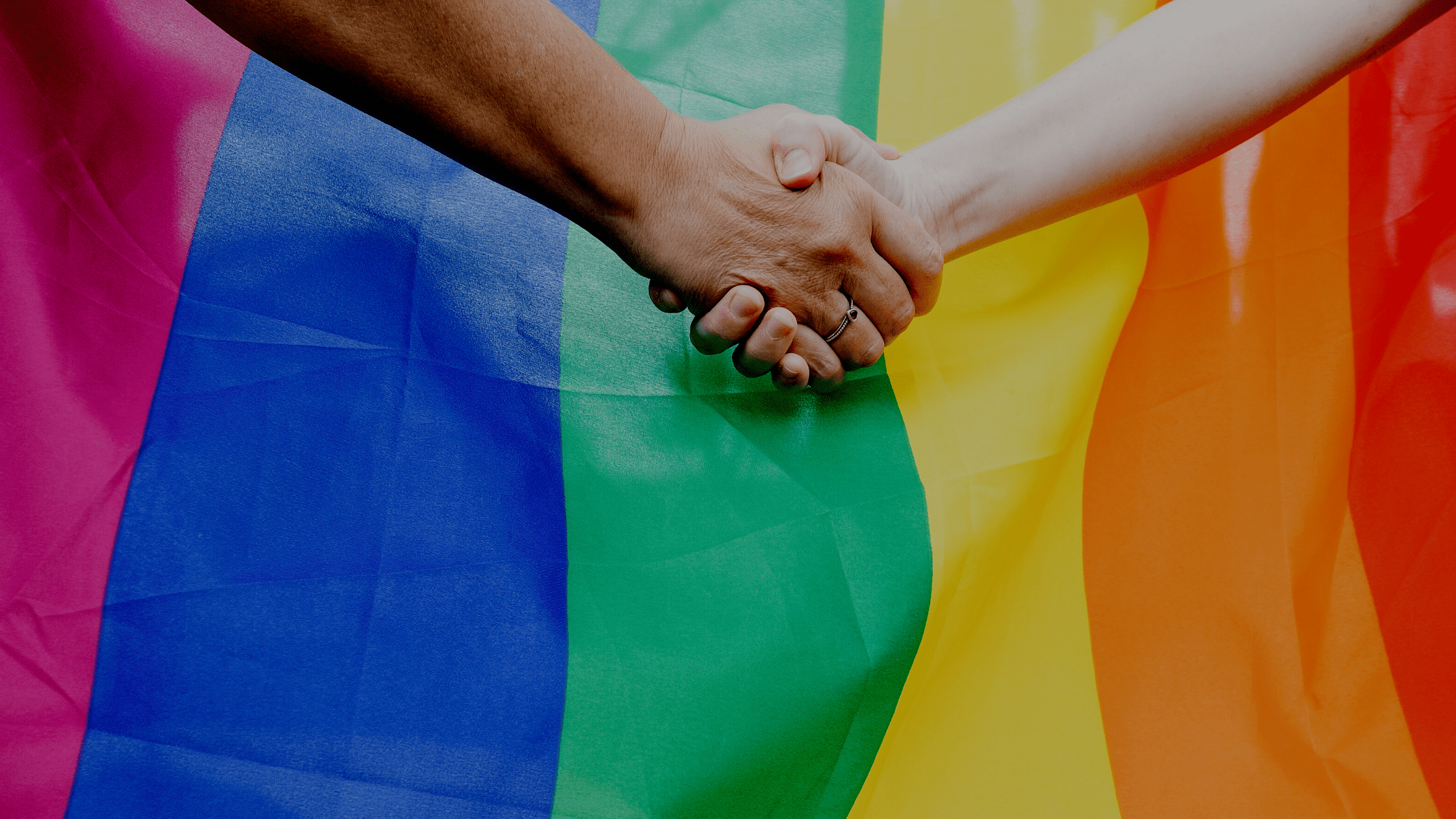Today, October 11th is National Coming Out Day in the United States. This day was created in 1988 to raise awareness for and support of individuals within the LGBTQ+ community.
As an NGLCC-certified LGBTBE, this is a special day for Acronym. So, we decided to interview our Chief People and Diversity Officer, Irwin Drucker about his own experience coming out as a gay man and what this day means to him.

Chief People & Diversity Officer, Acronym
What does National Coming Out Day mean to you?
Coming out is a process, and it differs for everyone. National Coming Out Day was created as a “safe space” for people to use, when they are ready, to share who they are with those they choose, safe in the knowledge that countless others will be having similar conversations with loved ones on the very same day.
When did you “come out?” What prompted it?
That’s a much more complicated question than it appears, because, like many other LGBT people, I “came out” a number of times, to different audiences.
I first came out to my family in 1985, when I was 26, and I was coming back to New York for Thanksgiving with my family. I had moved to Florida for a job two years before, and recently met Jerry, my first long-term partner. So two months prior to Thanksgiving, I flew up to New York for the Jewish New Year, and broke the news. It was probably one of the scariest moments of my life, so imagine my surprise when my Mom literally started laughing and said “Irwin, I’ve known that since you were 5 years old!” Dad didn’t have a clue, but was completely cool from day one. And my sister was supportive from the first minute I told her. All three of them continue to be amazing in their love and support, both of me individually, and of the LGBTQ Rights movement, as well.
I officially “came out” at work a few years later, although I had told some co-workers from day one of my employment at IBM. Given that IBM in the 1980s was nothing like the IBM of today, I really had no idea what to expect. Jerry had tested positive for HIV in 1986, and by 1989 he was beginning to have the symptoms of full-blown AIDS. I needed to take a lot of time off to drive him to doctor appointments, and my work was beginning to suffer. I realized that the only way I could get the support I needed at work, and not risk losing my job, was to officially “come out” and also share the truth about Jerry, at a time when AIDS still had a HUGE stigma. Once again, good fortune had given me an amazing manager, Laura Weber, who couldn’t have been more supportive. I don’t know how I could have coped with the two years of Jerry’s illness and death if I hadn’t been able to be open and honest with everyone at work about how much I was going through.
What was that experience like?
In both of the instances I described, it truly felt as though the weight of the world had been lifted from my shoulders. Prior to coming out, most people feel, as did I, that they are unique in going through the process. It’s only afterward that we realize how many others have endured a very similar experience.
What should those in the process of making a decision to come out know?
Hmmmm … I guess there are a few important things to know. FIRST, know that your life will never be the same again. For me, that was a good thing, because I received, and continue to receive, a tremendous amount of love, support and encouragement. In fact, had I remained closeted, I would never had the opportunities I did to create change and push for LGBTQ equality! SECOND, know that even if it doesn’t go well (sadly, I’ve lost count of the number of friends who were initially completely rejected by their family and friends) and you wish you had remained closeted, you will soon realize that it was still the best thing you could have ever done. Coming Out is truly giving yourself a gift – the gift of freedom! Until you come out, you can’t really live your life as your full and complete self. Once you are able to do that, trust me, YOU CAN DO ANYTHING!! And finally, THIRD, know that YOU ARE NOT ALONE! If you’re struggling with coming out, talk to someone; it really makes the whole process so much easier!
Where can individuals find the encouragement and support they need to make this decision?
OMG, there are SO MANY places to get support now. A lot depends on the person’s age. If you’re still in High School (or younger), many public school systems have gay-straight alliances that create safe spaces for students to come out. And almost all colleges do, too. Many religious denominations have also incorporated LGBTQ safety into their youth programs. And there are countless national organizations in place to help, too, including:
- PFLAG: PFLAG is the first and largest organization for lesbian, gay, bisexual, transgender, and queer (LGBTQ+) people, their parents and families, and allies.
- GLSEN: Founded by a group of teachers, GLSEN’s mission is to ensure that every member of every school community is valued and respected regardless of sexual orientation, gender identity or gender expression.
- GLAAD: For over 30 years, has been at the forefront of cultural change, accelerating acceptance for the LGBTQ community.
- Out and Equal: Out & Equal is the premier organization working exclusively on LGBTQ workplace equality.
- The National LGBTQ Taskforce: The National LGBTQ Task Force advances full freedom, justice and equality for LGBTQ people.
- The Trevor Project: The Trevor Project is the world’s largest suicide prevention and crisis intervention organization for LGBTQ (lesbian, gay, bisexual, transgender, queer, and questioning) young people.
Also, most major metro areas have at least one LGBTQ Community Center where you can talk to someone about what you’re experiencing.
How can the loved ones of a person who is coming out – or struggling to decide to come out – help them?
If you’re the parent, or sibling, or friend of someone who you think might be LGBTQ and aren’t sure how you can support them, you can reach out to those resources, too! You may not realize it, but your support is critical to the newly “out” person. You only get one chance to get it right the first time. And just like the person coming out, you’re also not the only one to be going through this. So don’t feel as though you have to go it alone; get support if you need it. You obviously love and care about the person in question, so make sure you can be as supportive and loving as possible!! And if anyone here at Acronym is either at some point in the coming out process, or has a loved one who is, and needs to talk about it, please call me, anytime!
What else is important to know?
There’s one thing you really shouldn’t ever do, and that’s telling someone that you know they are LGBTQ before they are ready to come out. While well-intentioned on your part, it usually pushes the individual even further back into the proverbial closet. Why? Because they begin to realize that if you know, then others may know also, and that can be so terrifying to them, that they become paralyzed into inaction. Just give them space and let them do it on their time. What you can do, however, is say and do things that give them every reason to believe that you will be supportive, when they are ready!
If you are struggling to find the right way or time to come out to your loved ones, please visit one of the organizations above for assistance. If you are considering self-harm, please call the National Suicide Prevention Hotline: 800-273-8255 and know you are loved and valued and it really does get better.







